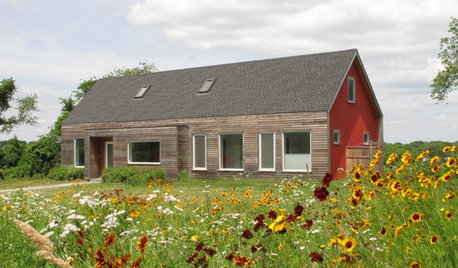Everyone wants specifics!
nancyjane_gardener
12 years ago
Related Stories

LANDSCAPE DESIGNHow to Design a Meadow Garden Everyone Will Love
Petite grasses or sedges plus flowers make for a manageable landscape that welcomes wildlife
Full Story
DECORATING GUIDESDiscover the Rug Type Everyone Wants
You can clean them quickly. They come in every color and pattern imaginable. You can score one cheap. Say hello to flat-weave rugs
Full Story
ORGANIZINGWant to Streamline Your Life? Get a System
Reduce stress and free up more time for the things that really matter by establishing specific procedures for everyday tasks
Full Story
INSPIRING GARDENSA Melbourne Backyard Entices Everyone Outside
Music lovers add a pool, pizza oven and fire pit for a yard that’s a big hit with the whole family
Full Story
SHOP HOUZZShop Houzz: Cool and Clever Tech Gifts Everyone Will Love
Today everyone is living ‘smart,’ so tech makes the perfect gift!
Full Story
UNIVERSAL DESIGNDesign for All: Creating a Home That Works for Everyone
Universal design makes life better whether you are 3 or 103
Full Story
DECORATING GUIDESRoom of the Day: Something for Everyone in a Seattle Family Room
Family members downsize to a home that will shorten their commutes and give them more time together — much of it spent in this room
Full Story
PRODUCT PICKSGuest Picks: There’s a Cookie Jar for Everyone
Feed conversations as much as your sweet tooth with a fun cookie jar on the kitchen counter
Full Story
PRODUCT PICKSGuest Picks: Bamboo for Everyone
Thank smooth lines, scads of shapes and a renewable nature for bamboo's newfound popularity in homes of all styles
Full Story
LIFEYou Said It: ‘It's Not for Everyone, and That’s Fine’
Design advice, inspiration and observations that struck a chord this week
Full Story




wayne_5 zone 6a Central Indiana
Kimmsr
Related Discussions
WANTED: Just wanted to wish everyone a Merry Christmas
Q
Everyone wants to know...what is this?
Q
WANTED: Wanted: Specific Tropicals from caribbean
Q
I just wanted to remind everyone that tomatoes are FRUITS!
Q
gonebananas_gw
pnbrown
ssmdgardener
wayne_5 zone 6a Central Indiana
bi11me
pnbrown
ralleia
bi11me
ralleia
toxcrusadr
gonebananas_gw